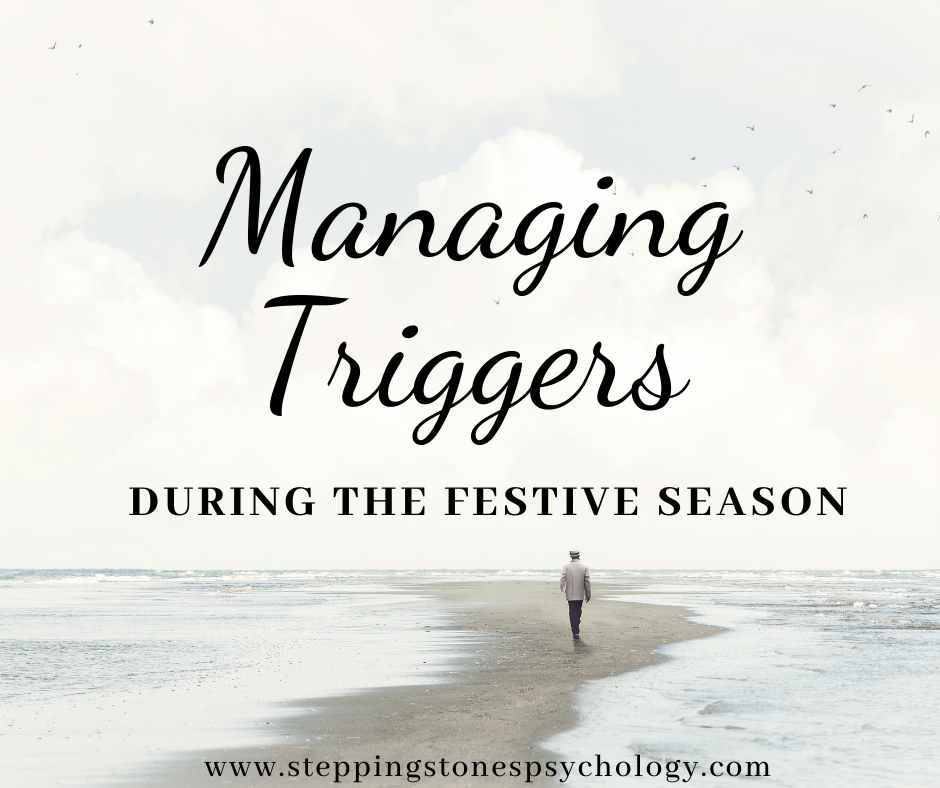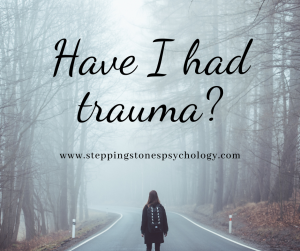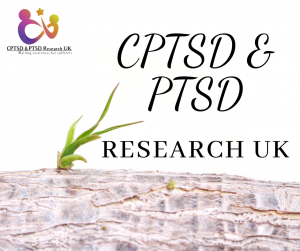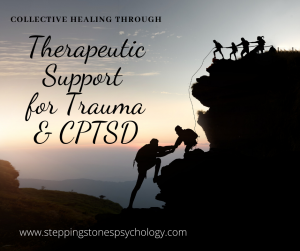We are now in the mid-week of December. Many people may be planning to join their family and others may already be there. Some of you may have made a conscious decision not to join your family.
December can be an emotive and triggering time for many.
Some of you may be anxious about connecting with toxic family during this season. This may be a time where you feel be triggered and where all the past experiences of having been abused, abandoned, rejected or made to feel invisible or small may come up to the surface.
For others, you may be spending this time on your own, far away or with minimal contact with your family. This could also lead to past experiences of having felt abandoned, alone and rejected being triggered.
For many, this time can tap into old wounds that are about unprocessed loss and grief from not having had a loving home where this festive season was about creating happy memories and deep, loving connections within the family unit. Pain and loss about how it could have been, but wasn’t and never would be… 💜
For some, it may not be about unprocessed and completely new stuff, but about things you have already had awareness of and processed, but where a new and deeper layer of the same old wound need to be processed, nurtured and healed.
What can you do?
One thing that may be helpful is to make a conscious decision to use more of the resources from your resources kit and selfcare kit. This might involve actively plan ahead how you will take time aside for yourself – to look after yourself. This may be even more important if you will be spending the festive season surrounded by toxic family members because it is very like to trigger past traumas.
Following are the 13 steps for reducing distress by Pete Walker (Copyright by Peter Walker) which he has very kindly given me permission to share.
Pete Walker, is not only a trauma therapist but also a trauma survivor himself and has done a lot of work around surviving complex trauma. The 13 steps has been recommended by him to use when you are in immediate distress as a way to reduce fear and anxiety. This resource is from his book called, ‘Complex PTSD: From Surviving to Thriving’. Although, it is specifically written with Complex Trauma survivors in mind, the strategies can be used by anyone suffering from anxiety or distress.
The 13 strategies are practical steps for helping yourself to manage an emotional flashback. Emotional flashback can feel a little bit like a panic attack but much more intense and people often describe them as, or confuse them to triggers. Pete Walker describes emotional flashback as an intense, confusing and disturbing phenomenon. It can be accompanied by an intense arousal of the flight/fight instinct. Some signs are that you feel extremely anxious, panicky, or even suicidal. For others, it can be characterised by a sense of numbness, feeling ‘flat’, paralysed and wanting to hide away. For some, it can be a sense of feeling small, fragile, powerless and helpless. Sometimes, it can be a combination of all, or some of these feelings.
One way to look at this is that triggers are a spectrum and that on the highest level of the spectrum (the most intense one) is where emotional flashbacks are.
I hope the list below will be helpful to you (FOCUS ON THE BOLD PRINT WHEN FLASHBACK IS ACTIVE):
- Say to yourself: “I am having a flashback”. Flashbacks take you into a timeless part of the psyche that feels as helpless, hopeless and surrounded by danger as you were in your childhood. The feelings and sensations you are experiencing are past memories that cannot hurt you now.
- Remind yourself: “I feel afraid but I am not in danger! I am safe now, here in the present.” Remember you are now in the safety of the present, far from the danger of the past.
- Own your right/need to have boundaries. Remind yourself that you do not have to allow anyone to mistreat you; you are free to leave dangerous situations and protest unfair behaviour.
- Speak reassuringly to the Inner Child. The child needs to know that you love her/him unconditionally – s/he can come to you for comfort and protection when s/he feels lost and scared.
- Deconstruct eternity thinking. In childhood, fear and abandonment felt endlessly – a safer future was unimaginable. Remember this flashback will pass as it always has before.
- Remind that you are in an adult body with allies, skills and resources to protect you that you never had as a child. [Feeling small and fragile is a sign of an emotional flashback.]
- Ease back into your body. Fear launches you into “heady” worrying, numbing and spacing out [a] Gently ask your body to Relax: feel each of your major muscle groups and softly encourage them to relax. [Tighten muscles send false danger signals to your brain. [b] Breathe deeply and slowly. [Holding your breath also signals danger.]
[c] Slow down: rushing presses your brain’s flight response button.
[d] Find a comfortable/relaxing place (Pete Walker has called this a ‘safe place’. I will say find a comfortable/relaxing/special place – if you struggle to identify a place as a safe place) to unwind and soothe yourself in: wrap yourself in a blanket, hold a pillow or a stuffed animal (whatever feels comfortable to you), lie down on your bed or in a closet or in a bath; take a nap.
[e] Feel the fear in your body without reacting to it. Fear is just an energy in your body. It cannot hurt you if you do not run from it. - Resist the Inner Critic’s Drasticizing and Catastrophizing.
[a] Use Thought-stopping to halt the critic’s endless exaggerations of danger, and its constant planning to control the uncontrollable. Refuse to shame, hate or abandon yourself. Channel the anger of self-attack into saying “NO” to your critic’s unfair self-criticism.
[b] Use Thought-substitution & Thought-correction to replace negative thinking with a memorised list of your qualities and accomplishments. - Allow yourself to grieve. Flashbacks are opportunities to release old, unexpressed feelings of fear, hurt, and abandonment. Validate and soothe your (inner) child’s past experience of helplessness and hopelessness. Healthy grieving can turn your tears into self-compassion and your anger into self-protection.
- Cultivate safe relationships and seek support. Take time alone when you need it, but don’t let shame isolate you. Feeling shame doesn’t mean you are shameful. Educate intimates (the people you are close to/you trust) about flashbacks and ask them to help you talk and feel your way through them.
- Learn to identify the type of triggers that lead to flashbacks. Avoid unsafe people, places, activities and triggering mental processes. Practice preventive maintenance with these steps when triggering situations are unavoidable.
- Figure out what you are flashing back to. Flashbacks are opportunities to discover, validate and heal from your wounds from past abuse and abandonment. They also point to your still unmet developmental needs and can provide you with motivation to get them met.
- Be patient with a slow recovery process. It takes time in the present to become de-adrenalized, and considerable time in the future to gradually decrease the intensity, duration and frequency of flashbacks. Real recovery is a gradually progressive process [often two steps forward, one step back], not an attained salvation fantasy. Don’t beat yourself up for having flashbacks.
Finally, this is a time where one can feel more vulnerable and alone. So I hope you are doing whatever that works for you to look after yourself. Be gentle, kind and compassionate to yourself. You deserve it. 💜
I wish you a peaceful time during the festive season and I wish you all the very best for the new year.
The fact that you are here (following my website/Facebook Page/Facebook Group) is evidence that you have made this healthy choice for YOU and that you are working very hard on creating healthier and better choices for yourself. Whether that comes to selfcare, boundaries, or self-compassion. You are wiling to choose to take small baby-steps just for YOU and your growth and healing. A big well done.
Here is for hope for the future – for more growth and healing.
Warmly,
Sharmi
For more:
For more free tips and resources, please feel free to join my Trauma and PTSD group: https://www.facebook.com/groups/PTSDandTraumaSupportPackage
For ongoing support through a dedicated membership for trauma survivors at a low cost, please follow this link: https://steppingstonespsychology.com/membership-for-trauma-survivors
If you find yourself struggling and that you are judging yourself for this, you may find this helpful: https://steppingstonespsychology.com/blog-resources/dont-judge-the-judging
© Sharmi Gowri-Kriszyk under Stepping Stones Psychology 2020




